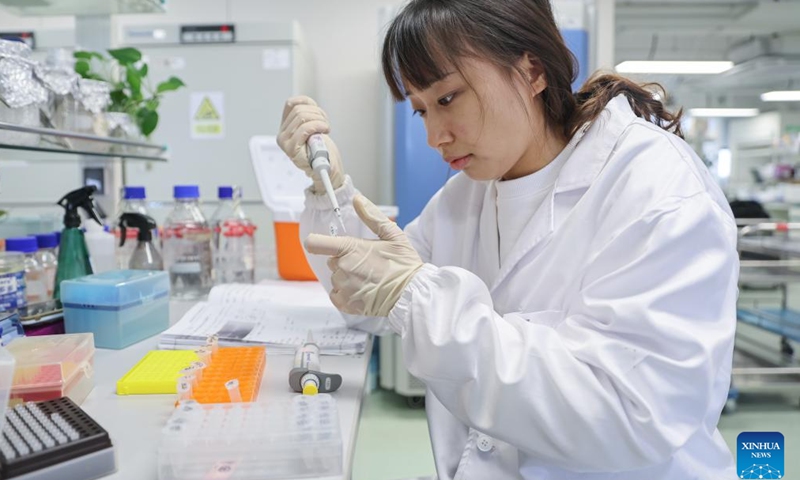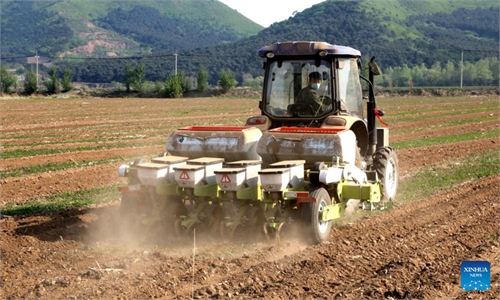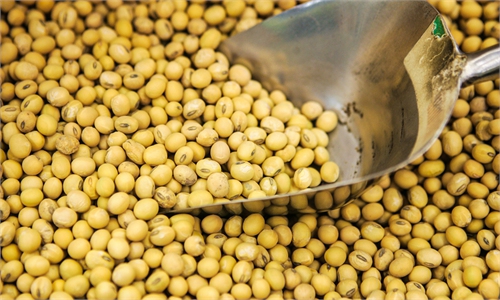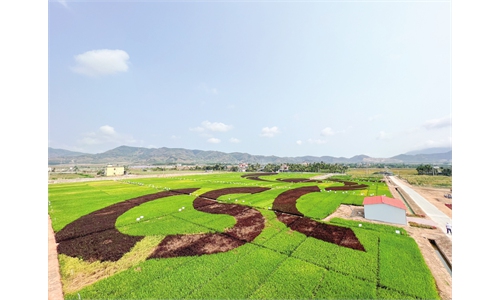
A researcher conducts experiments at a seed laboratory in Sanya, south China's Hainan Province, Dec. 29, 2023. Sanya's abundance of sunlight expedites the breeding cycle, drawing numerous researchers from across the country to breed new species of crops every October till the next April. (Photo: Xinhua)
As part of the country's agricultural advancement efforts, China has started to select a batch of new seed potatoes out of 10,800 salt-tolerant potatoes exposed to outer space at the Shenzhou-16 mission, for future cultivation.
This marks a significant milestone in the country's bid to harness cutting-edge agricultural technologies like aerospace research and gene editing for crops innovation.
The seed potatoes, part of a diverse payload of 136 species aboard the Shenzhou-16 spacecraft for experimental space breeding, will go through a rigorous selection process.
Among the payloads were 47 types of crops, including 12 varieties of food crop seeds, 28 economic crop seeds, and 7 salt-tolerant species. The mission also carried 76 types of forestry, grass, flowers, and medicinal plants, as well as 13 other microorganisms.
The exposure of the seeds to the unique environment of outer space is a well-established method for inducing genetic variations, Jiang Zhuoting, a researcher at Nagoya University Graduate School of Bio-agricultural Sciences in Japan, told Global Times on Tuesday.
Seeds in space often experience a mutation rate three to four times higher than on Earth, and the accelerated rate of mutation can potentially halve the time required for their breeding, Jiang said.
What sets the program apart is the use of gene editing technology as part of the traditional breeding process. Through precise gene editing, researchers can target specific genes that contribute to salt tolerance, accelerating the development of improved crop varieties. By combining these technologies with conventional breeding methods, scientists can create new potato varieties optimized for cultivation in saline-alkali soil.
Gene editing allows researchers to make precise modifications to the genome of the breeding seeds, ensuring that they express desired traits more accurately. Compared to traditional breeding techniques, the new approach is faster and more accurate, Jiang noted.
China is leading gene editing research and application with its widespread use across various fields, including agriculture and biology, and, the breed selection is part of its latest achievements in this area, Jiang said.
China attaches great importance to agriculture and seed industry. From Thursday to Saturday, the 3rd Sanya International Seed Industry Scientists Conference was held in Hainan Province. More than 30 Chinese and foreign academicians and about 40 international experts from 18 countries attended the meeting, showcasing China's achievements and innovations in the seed industry.
At the conference, the gene editing and biotechnology forum was one of the main sub-forums. Scientists shared topics including the innovation and utilization of gene editing, demonstrating the latest achievements of gene editing technology.



